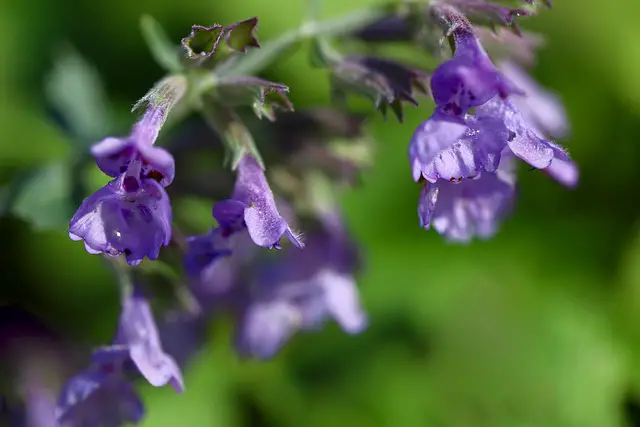Feral cats are wild cats that have not been socialized to humans. They are typically the offspring of a pet or stray cats that have been abandoned or have run away and returned to a wild state. Feral cats are not comfortable around humans and are usually afraid of them. However, they will tolerate proximity to humans if they are attracted by a food source, such as Catnip. So, does Catnip attract feral cats?
The answer is yes—Catnip does attract feral cats.
Catnip is so irresistible to cats that it has even been known to lure indoor-only cats outside!
While the jury is still out on exactly why Catnip is so attractive to our feline friends, there is no doubt that it has a powerful effect on them.
When a cat smells Catnip, it can trigger a response in its brain similar to the feeling humans get when they smell something pleasant, like roses.
This response causes the cat to feel relaxed and happy—which explains why they often roll around and rub their faces in it when they encounter it.
While Catnip may be a great way to lure a feral cat into your yard to get a good look at it, it’s important to remember that these cats are wild animals and should be treated as such.
If you try to approach or capture a feral cat, it will likely become scared and aggressive. The best way to help feral cats is to leave them alone and provide them with food and water from a distance.
If you’re interested in assisting a colony of feral cats, many organizations can help you get started.
What are the ingredients in Catnip that will attract cats?
Catnip is a member of the mint family, and its scientific name is Nepeta Cataria.
The plant grows to about two or three feet tall and has pale green leaflets with white flowers. Catnip contains an aromatic oil called nepetalactone.
This oil that is found in the leaves and stems of the plant will attract cats. When a cat smells or ingests this oil, it will have a reaction that is similar to being intoxicated.
Some cats will become very playful, while others may become calmer.
The effects of Catnip usually last for about fifteen minutes before the cat becomes immune to it for a short period.
After about an hour, the cat can be affected by Catnip again. Not all cats will react to Catnip, but it is estimated that about two-thirds of cats are affected by it.
If you have catnip plants in your yard, will they attract Feral Cats
?
The short answer is yes; if you have catnip plants in your yard, they may attract feral cats.
Catnip (Nepeta cataria) is a member of the mint family native to Europe and Asia. It is a perennial herb that can grow up to three feet tall and produces small, white flowers.
The leaves and stems of the plant contain an essential oil attractive to cats. When a cat smells this oil, it produces a mild euphoria that can last for several minutes.
For this reason, Catnip is sometimes called “catmint.” Unfortunately, while most domestic cats enjoy the effects of Catnip, it does not seem to have the same effect on all cats.
Some cats may be indifferent to the plant, while others may even find it repulsive. In addition, the plant’s effects typically last for a few minutes before the cat becomes immune to its effects. As a result, feral cats are unlikely to be attracted to catnip plants in large numbers.
However, if you have a particularly large or aromatic catnip plant, it may be worth keeping an eye on it to ensure that it does not become a gathering place for feral cats.
How do feral cats react to Catnip?
Feral cats are wild members of the cat species, and their behavior can be quite different from that of domestic cats. One area of difference is their reaction to Catnip.
While domestic cats typically become relaxed and playful when exposed to Catnip, feral cats tend to show a more marked response.
They may become more active, running, leaping, and even attacking toys or other objects. In some cases, they may even become aggressive toward people or other animals.
The reason for this difference is not fully understood, but it is thought that the different lifestyles of domestic and feral cats may play a role.
Domestic cats typically live in homes where they are well-fed and have few predators to worry about. As a result, they may be less sensitive to potential threats.
On the other hand, feral cats often live in colonies where competition for food is high, and predators are a real danger. This may cause them to react differently to Catnip, as it mimics the effects of certain predatory chemicals.
Whatever the reason for the difference in reaction, it is clear that feral cats do not always respond to Catnip similarly to their domestic cousins.
Conclusion
If you’re hoping to lure a feral cat into your yard with Catnip, you’re in luck—it’s one of the few things these wild animals find irresistible! First, however, it’s important to remember that feral cats are wild animals. Approaching or trying to capture one is likely to result in an aggressive response, so you can leave them be and provide food and water from afar.
[su_box title=”Affiliate Disclosure”]This website is supported by its readers. Please assume that all links are affiliate links. If you make a purchase from one of the links we will make a commission from Amazon. Thank you.[/su_box]




